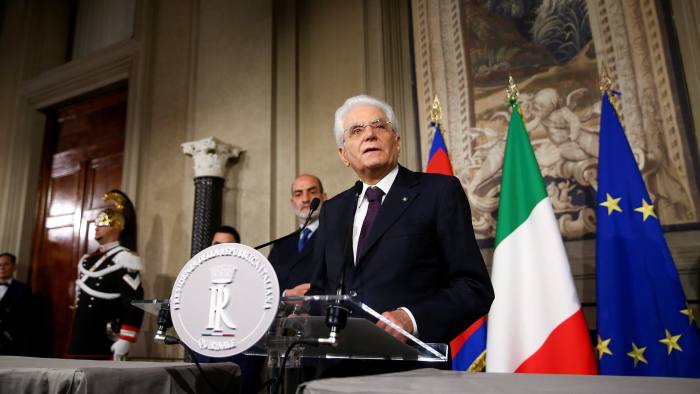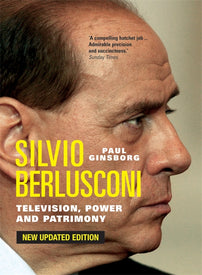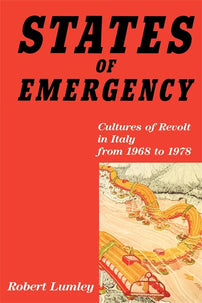Championed League
After President Sergio Mattarella’s decision to reject the Lega candidate for Economy Minister, and the ensuing constitutional and economic crisis, David Broder asks where next for Italian democracy?

Even at a moment of high tension, it looked like a remarkable blunder. President Sergio Mattarella’s decision to reject the Lega candidate for Economy Minister has turned Italy’s political crisis into a constitutional and economic mess. The Five Star Movement (M5S) has made an unlikely call for the president to be impeached, and as bond sell-offs intensified, the Governor of the Bank of Italy warned that the country is ‘only ever few short steps away’ from losing investors’ trust..
Mattarella’s move was not unconstitutional in the way M5S suggest. Although the president is not supposed to play a party-political role, he does have the ultimate right to nominate ministers. His predecessors have rejected the candidates proposed by the governing parties before, and in 2011 president Giorgio Napolitano went far further in actively organising the new government. But never before has an Italian president so sharply clashed with the majority parties.
After twelve weeks of stop-start negotiations the nomination of the Economy Minister had been the final sticking point. Mattarella rebuffed the Lega’s choice for this role, the Eurosceptic economist Paolo Savona. He insisted that given Savona’s talk of a ‘plan B’ to leave the euro, his nomination would itself precipitate economic chaos and even begin the path to Italexit. The president has sought to buy time, but also to force the parties to make their European policy more explicit.
For Mattarella’s defenders, the fact that neither the Lega nor M5S had referred to leaving the euro in their pre-election manifestoes or in their coalition contract, meant that there was no mandate for Savona. If these parties want to leave the euro, then they should openly campaign for it and put it to the voters. Yet the president’s move is itself a huge gamble, seemingly fuelling the Eurosceptic bandwagon and allowing the M5S and Lega to claim a thwarting of the popular will.
In recent years, the Lega and M5S have repeatedly changed their positions on the euro, making political capital out of railing against ‘Brussels’ but without proposing specific plans for Italexit or even for limited reform of the eurozone. This week’s crisis perfectly played into this logic: Lega leader Matteo Salvini insisted the Economy Minister must not be ‘Berlin’s man’, while Mattarella argued that it would be irresponsible to shake the markets and jeopardise Italians’ savings.
This line of argument has played into the M5S and especially the Lega’s claims that established centrist elites and their European allies set treaties and investors above the will of the people. Yet it is worth noting that these ‘outsider’ parties’ calls for EU reform is much more ambiguous than Anglophone media often suggests. During coalition negotiations they briefly toyed with the demand for a part-cancellation of Italy’s soaring €2.4tn public debt, before dropping this from the final contract.
Nonetheless, the Italian political situation has continued to radicalise in recent weeks, to the benefit of the Lega. Rising from 4% to 17% in the 4 March vote, in recent weeks this once-Northern regionalist party has made breakthroughs in contests in the Southern region of Molise, where previously it had not even stood candidates, and the Val d’Aosta. Polling this week has Matteo Salvini’s party ten points higher than its general election score, as it becomes an all-Italian nationalist party.
Despite M5S’s much bigger share on 4 March (32%), and its strong support among poorer voters, the amorphous movement has become increasingly subordinate to Salvini’s party. Reflecting the Lega’s concerns, their coalition agreement promised two flat tax rates (effectively a massive transfer of wealth towards the wealthiest households) and the repatriation of 500,000 immigrants currently on Italian soil. The agreement contained no specific measures for the long-abandoned South, where M5S is strongest. Yet 94% of M5S registered supporters (of those who voted) backed the deal.
This contract is on ice for now. With Lega’s refusal to propose any other candidate for Economy Minister, Mattarella instead appointed a caretaker government. Due to remain in office for only a few months before fresh elections are held, the new cabinet will be led by ‘Mr. Scissors’ Carlo Cottarelli, an austerian former IMF official. The choice of a centrist figure so strongly at odds with the parliamentary majority seems sure to produce a short pause, only to bring an even bigger Lega breakthrough.
After the Democrats’ defeat on 4 March, its leader Matteo Renzi offered his resignation, effective once the next government had been formed. This allowed him to remain in post during coalition talks, blocking an unlikely pact with the M5S. Even now his position remains ambiguous. He has called for a broad front against the ‘sfascisti’ (the forces ‘tearing away at’ Italy’s institutions) and may even launch a new party integrating elements of Silvio Berlusconi’s centre-right Forza Italia. Yet the fragments he hopes to unite are ever less able to command support.
Where Renzi and Berlusconi’s parties together scored 70 percent of the vote at the beginning of the economic crisis and 47 percent in 2013, that figure now stands at under 33 percent and looks set to sink further. The rise of M5S and Lega is but the latest upheaval of the Italian party system, in crisis since the end of the Cold War and the economic malaise of the last quarter-century. The centre-left and centre-right established in the 1990s never concretised as class-based blocs like their predecessors, and the party system is today fragmented and turbulent.
Renzi’s bid to unite the centre against the so-called ‘populists’, based on making the general election a ‘referendum’ on euro membership, looks ill-fated. While the situation is changing fast, Lega rhetoric since Sunday makes it more likely that the hard-right party will campaign on the question of wronged democratic choice, rather than explicitly pitch Italy toward leaving the single currency. Both the austerity measures taken under recent Democrat-led governments, and its arrogant tone, have allowed the Lega to posture as standing up for the ‘little guy’ against ‘established powers’–despite its own regressive social policy.
In all this, the left is almost absent, the heated fight between the centrist establishment and the reactionary insurgents leaving it either silent or forced to rally behind some other interest. Despite M5S and Lega’s reactionary agenda, these parties have thus far proven able to express the atomised discontent among a population long hit by economic malaise and failing institutions. The Democrats can invoke constitutional propriety, but over three times more blue-collar workers vote M5S than for the heirs of a once-mighty Communist Party.
The worst reaction, in this situation, is a kind of defensive nostalgia, resigning oneself to the current malaise for fear it will get worse still. This was epitomised in former Marxist academic Toni Negri’s comments before the general election. He hoped for a deus ex machina to save Italy from the voters: ‘I hope Brussels takes over the reins in Italy after the general election. It’s not what I want, for me the European bureaucracy is the big enemy. But is better to have something than an utter vacuum. Angela Merkel, come forward…’
Savona’s co-thinkers will doubtless accuse Berlin of having imposed Mattarella’s decision. This is clearly an exaggeration; Mattarella represents a share of Italian elite opinion, albeit a shrinking one. But Der Spiegel articles calling Italians ‘scroungers’ or even the portrayal of ‘barbarians’ taking Rome (Financial Times) seem ill-designed to foster internationalist fellow-feeling. These arrogant sentiments also chime with recent Italian ministers who called the young unemployed too ‘choosy’ or, like the Democratic mayor of Pesaro, blame the M5S’s rise on ‘social envy’.
It is not much use saying that Italy has equal voting power to Germany in the European Central Bank, if we start out from the assumption that its debt can never be cancelled and the euro rules are established forever. It is not much use bewailing the rise of ‘populism’ while also openly spitting on the blue-collar workers and unemployed people who turn to ‘outsider’ parties. Anything approaching a left-wing politics has to offer dignity and hope to the precarious and low-earning, rather than just treat these citizens and their country as discipline cases.
Rebuilding the left and taking back the banner of representing the excluded and the forgotten is a long-term task. What we now face is a further wave of reaction, and likely fresh breakthroughs for the Lega. But to retreat into despair, or to think that nothing can be done but defend the status quo, will only more surely hand the country to Matteo Salvini on a plate. The situation is awful, fractious, scary even. The best thing we can say about today’s Italy is that things have been much worse before.
[book-strip index="1" style="display"]


